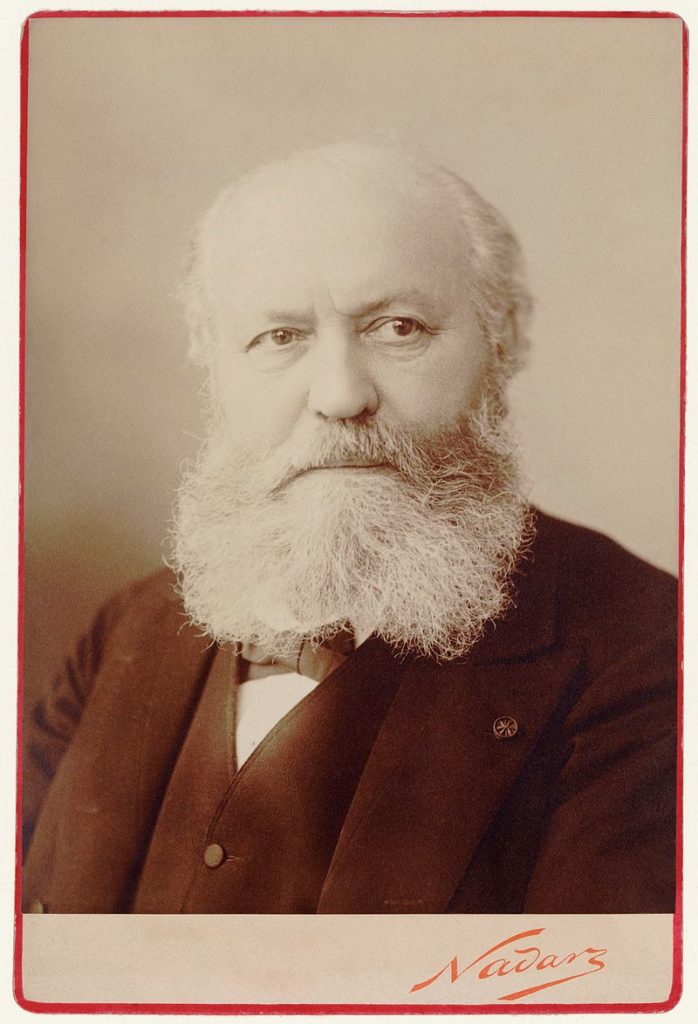
Charles Gounod Quotes
Charles Gounod, was a French composer. He wrote twelve operas, of which the most popular has always been Faust; his Romeo and Juliette are two of his international knowns works. He composed a large amount of church music, many songs, and popular short pieces. Charles Gounod was born in Paris into a musical family He was deeply religious, and after his return to Paris, he briefly considered becoming a priest. He composed church music and orchestral music and operas.
Image: Portrait photo of composer, Charles Gounod
“I felt as if I were in some temple as if a heavenly vision might shortly rise before my sight… Oh, what a night! What a rapture! What Elysium!”
“Musical ideas sprang to my mind like a flight of butterflies, and all I had to do was to stretch out my hand to catch them.”
“If all the music written since Bach’s time should be lost, it could be reconstructed on the foundation which Bach laid.”
“This severe, ascetic music, calm and horizontal as the line of the ocean, monotonous by virtue of its serenity, anti-sensuous, and yet so intense in its contemplativeness that it verges sometimes on ecstasy”.
After some praise from Felix Mendelssohn:
“Words like this from such a master are a true honor and one wears them with more pride than any ribbon.”
“There’s only one place where a composer can make a name for himself: the theatre.”
“It is high time the flag of the liturgical art took the place occupied hitherto in our churches by that of profane melody. Let us banish all the romantic lollipops and saccharine porosities which have been ruining our taste for so long. Palestrina and Bach are the musical Fathers of the Church: our business is to prove ourselves loyal sons of theirs.”
Ivan Turgenev, a Russian poet, wrote this about Charles Gounod:
“What Gounod lacks somewhat is a brilliant and popular side. His music is like a temple: it is not open to all. I also believe that from his first appearance he will have enthusiastic admirers and great prestige as a musician with the general public; but fickle popularity, of the sort that stirs and leaps like a Bacchante, will never throw its arms around his neck. I even think that he will always hold it in disdain. His melancholy, so original in its simplicity and to which in the end one becomes so attached, does not have striking features that leave a mark upon the listener; he does not prick or arouse the listener — he does not titillate him. He possesses a wide range of colors on his palette but everything he writes — even a drinking song such as Trinquons — bears a loft stamp. He idealized everything he touches but in so doing he leaves the crowd behind. Yet among that mass of talented composers who are witty in a vulgar sort of way, intelligible not because of their clarity but because of their triviality, the appearance of a musical personality such as Gounod’s is so rare that one cannot welcome him heartily enough. We spoke about these matters this morning. He knows himself as well as any man knows himself. I also do not think that he has much of a comic streak; Goethe once said ‘man ist am Ende… was man ist.’” – Ivan Turgenev
About Gounod, composer Hector Berlioz said,
“… A young man richly endowed with noble aspirations; one to whom every encouragement should be given at a time when musical taste is so vitiated.” – Hector Berlioz
“With few exceptions… the familiar numbers in Faust (and there are many) have the crushing sweetness of salon music… Much of the popularity of Faust has always depended upon the ease with which many of its tunes touch emotions that are universal. These are sentimentality, religiosity, vague aspirations… they pervade the score.”